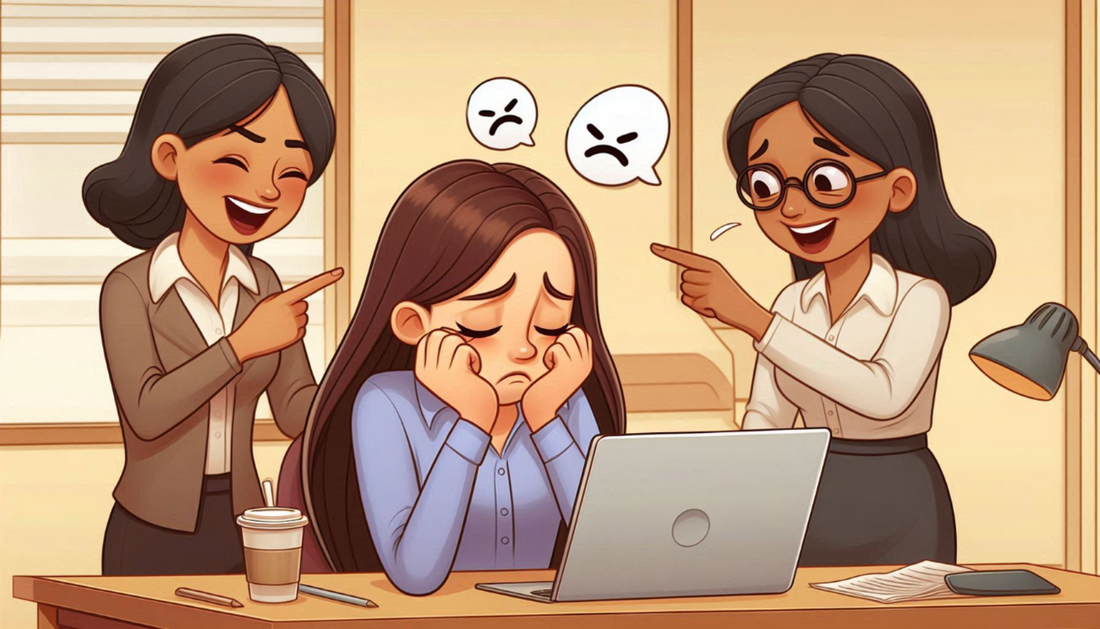We’ve all been there—someone shares their struggles, and before we know it, we’re jumping in with advice, offering solutions, or worse, silently passing judgment.
It’s human nature to want to fix things or to assume we know what’s best. But sometimes, our instinct to be “Judgey Judgertons” does more harm than good.
Instead of creating connection, it can lead to feelings of shame or misunderstanding.
So how do we shift away from judgment and truly support those around us?
The answer lies in a combination of empathy and a structured approach to self-care—what we call "The Stack".

Why We Judge
Judging others often stems from our own discomfort. When we don’t know how to handle someone else’s pain or challenges, we resort to judgment as a form of control. It’s easier to critique someone’s decisions than to sit with their emotions. But this tendency creates distance and blocks the opportunity for true connection and healing.

How Empathy Dissolves Judgment
Empathy is the antidote to judgment. Instead of seeing someone’s situation through your own lens and biases (so hard to do), empathy invites you to step into their shoes and see the world from their perspective. It’s not about fixing or advising—it’s about understanding and validating their experience.
When we approach others with empathy, we dissolve the barriers judgment creates. We allow people to feel heard, respected, and valued. This opens the door for meaningful support, rather than surface-level advice or critique. Oh, and empathy can be learned and practiced to become better and better.

The Role of The Stack in Supporting Others
At Broadmind, we use The Stack as a structured approach to self-care, and it can also help us support others in a non-judgmental way. The Stack focuses on three essential areas: body, nervous system, and emotional care. By recognizing which "layer" of the Stack someone is struggling with, we can offer more effective support without jumping to conclusions.
Here’s how The Stack can guide us:

- Body Care: Sometimes, people are struggling because their basic needs aren’t being met—sleep, nutrition, physical activity. Instead of judging their behaviour or assuming they should just "snap out of it," we can gently ask if they’ve been able to rest or nourish themselves properly.

- Nervous System Care: When someone is in fight-or-flight mode—anxious, overwhelmed, or reactive—it’s easy to see their actions as irrational. But instead of judging, we can acknowledge that they might be stuck in survival mode. Offering calming techniques or simply creating a safe space to decompress can be much more helpful than criticism.

- Emotional Care: Emotional pain is often the hardest for others to understand, leading to judgment like, "Why are they still upset about that?" The Stack teaches us that emotional care takes time and patience. We can support others by encouraging them to express their feelings without fear of judgment, giving them the emotional space to heal at their own pace.

How to Stop Being a "Judgey Judgerton"
*Pause Before Responding: When someone shares a problem, resist the urge to jump in with a solution. Take a moment to pause, breathe, and ask yourself: "Am I here to help or to fix?"
*Ask Questions, Don’t Assume: Instead of offering advice right away, ask questions to better understand their perspective. "How are you feeling about that?" or "What do you think you need right now?" shows support without imposing your own ideas.
*Recognize Your Triggers: Sometimes, we judge because someone’s situation hits close to home. Be aware of your own emotional triggers, and remind yourself that their journey is not yours to direct.
*Use Empathy to Connect: Put yourself in their shoes. What would you need if you were in their situation? Practice listening without judgment, and let them guide the conversation.
*Apply The Stack: Ask yourself which layer of The Stack they might need help with—body, nervous system, or emotional care. This gives you a structured way to offer support without making assumptions. It is both long term and short term work to support being less judgey.
Final Thoughts
Supporting others without being a "Judgey Judgerton" requires empathy, self-awareness, and a willingness to step out of our own heads. By using The Stack as a guide, we can offer meaningful, compassionate support that empowers others instead of shutting them down.
Next time someone comes to you for help, resist the urge to judge or fix. Instead, pause, listen, and let empathy—and The Stack—do the work. You’ll find that the more you let go of judgment, the more you’ll be able to truly connect and support those around you. And who knows? You might even learn something valuable about yourself in the process.
Want to learn more about The Stack and how it can improve your self-care and relationships?
Click here and stay tuned for more tips and tools on how to integrate this powerful model into your life!

